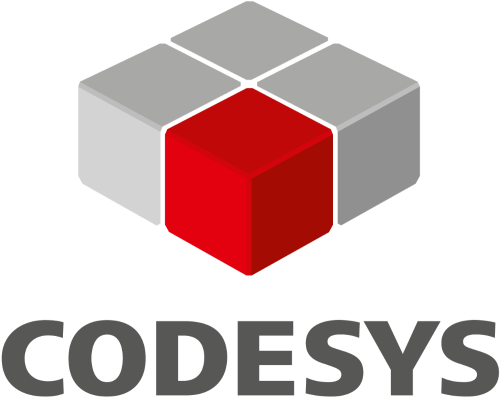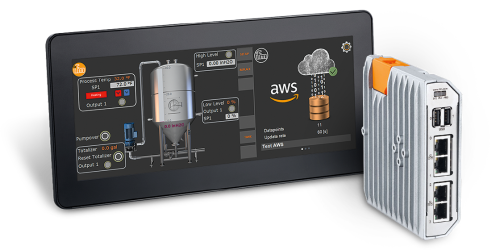|

|
➜ CODESYS Development System
- Encryption of the application source code:
Protect your application know-how with a password, dongle or X.509 certificates.
- User management on the project level:
Determine in detail the users authorised to read or write specific objects of your source code.
- Encrypted communication between the CODESYS Development System and the controller:
Use your automation device to protect data exchange against unauthorised access.
➜ CODESYS Application Code
- Access restrictions via application:
Use a library to define at runtime when specific critical operations must not be performed.
- Enable additional functions:
Determine in detail the users authorised to execute or operate specific functions of the application.
➜ CODESYS Visualization
- User management for visualisations:
Determine in detail whether a user is authorised to read or execute certain visualisations.
- Encrypted communication for CODESYSWebVisu:
Protect the data exchange between controller and browser.
|
➜ CODESYS Runtime System
- User management for controller access:
Avoid risk of failure by clearly defining which user of the controller is authorised to start and stop the application or execute additional online functions.
- Encryption and signing of executable application code:
Protect your application against unauthorised reproduction or modification by means of a dongle or X.509 certificates.
- Operation modes for executable application code:
Protect yourself against unintentional operations on the running machine.
- Interactive login on the target device:
Avoid unintentional access to controllers in the network.
- Easy exchange or recovery of controllers:
Exchange failed systems and easily install a previously created data backup.
- Encrypted OPC UA communication:
Avoid unauthorised access to data provided by the CODESYS OPC UA server.
|
➜ CODESYS Automation Server
- Encapsulation of devices in the local network:
Data exchange with the server exclusively via CODESYS Edge Gateway.
- Encrypted communication:
Data exchange between server and CODESYS Edge Gateway provides end-to-end encryption data via TLS based on X.509 certificates.
- Reliable user and rights management:
Access to objects and information can be finely adjusted by means of object properties and user favourites – user favourites are secured in addition by two-factor authentication.
- Complete transparency of actions:
Recording of access events and changes via audit trail.
- Protection of know-how:
Signing/encrypting of source and compiled binary code via X.509 certificate, dongle or password.
- Certified security:
Regular security audits by external auditing agencies.
|
|

